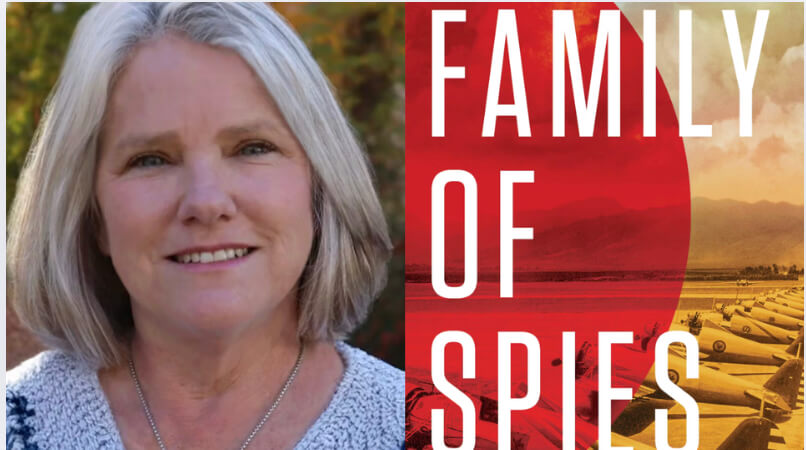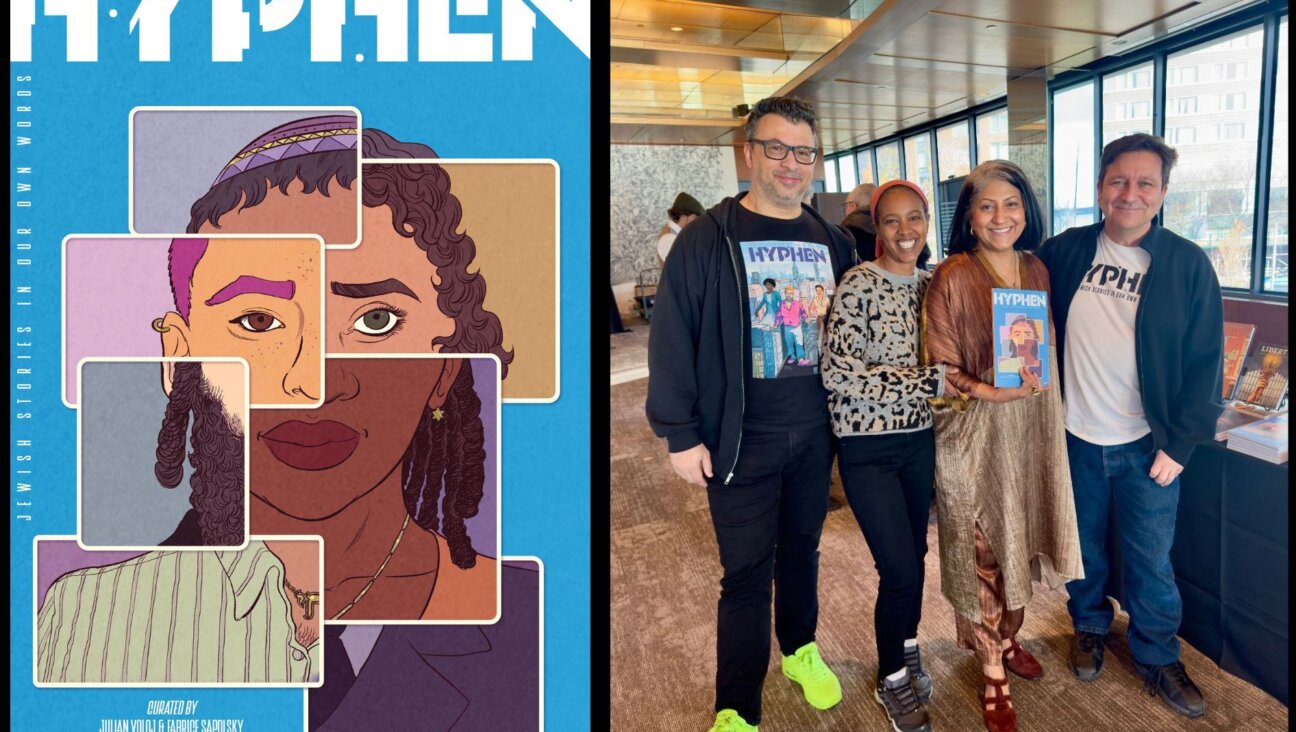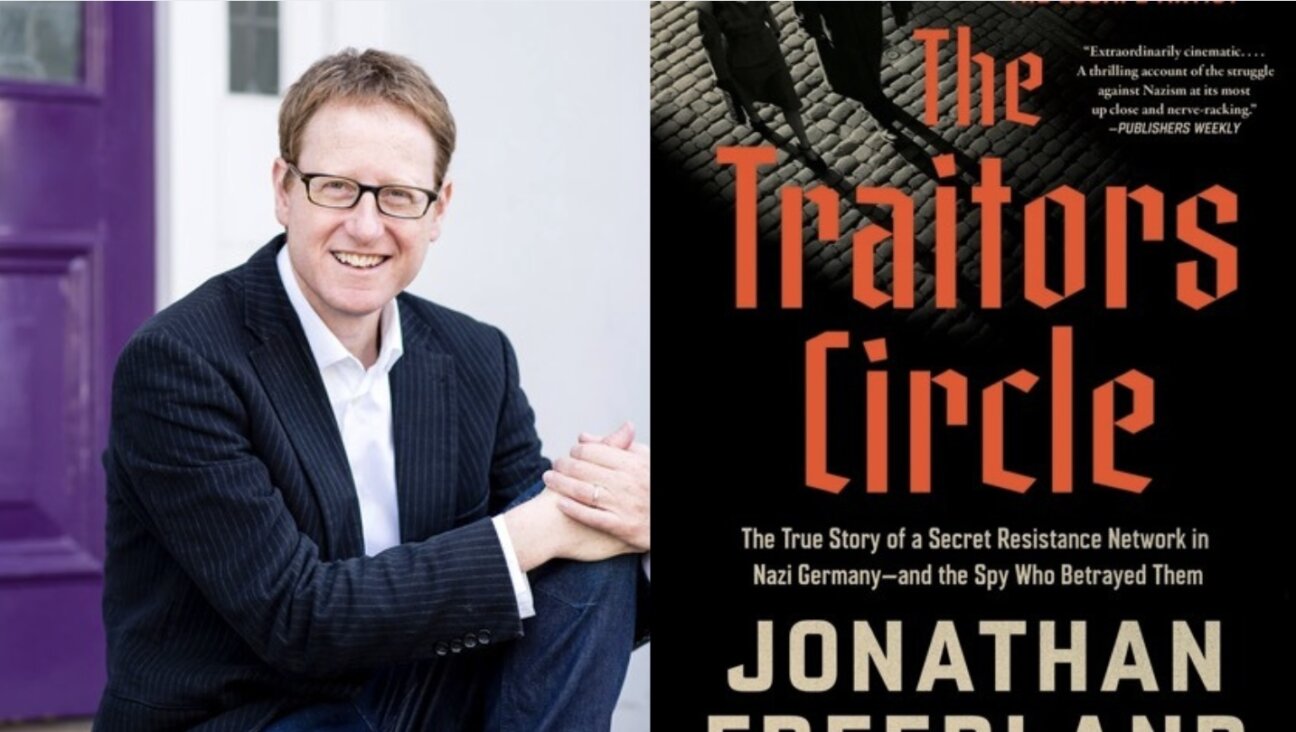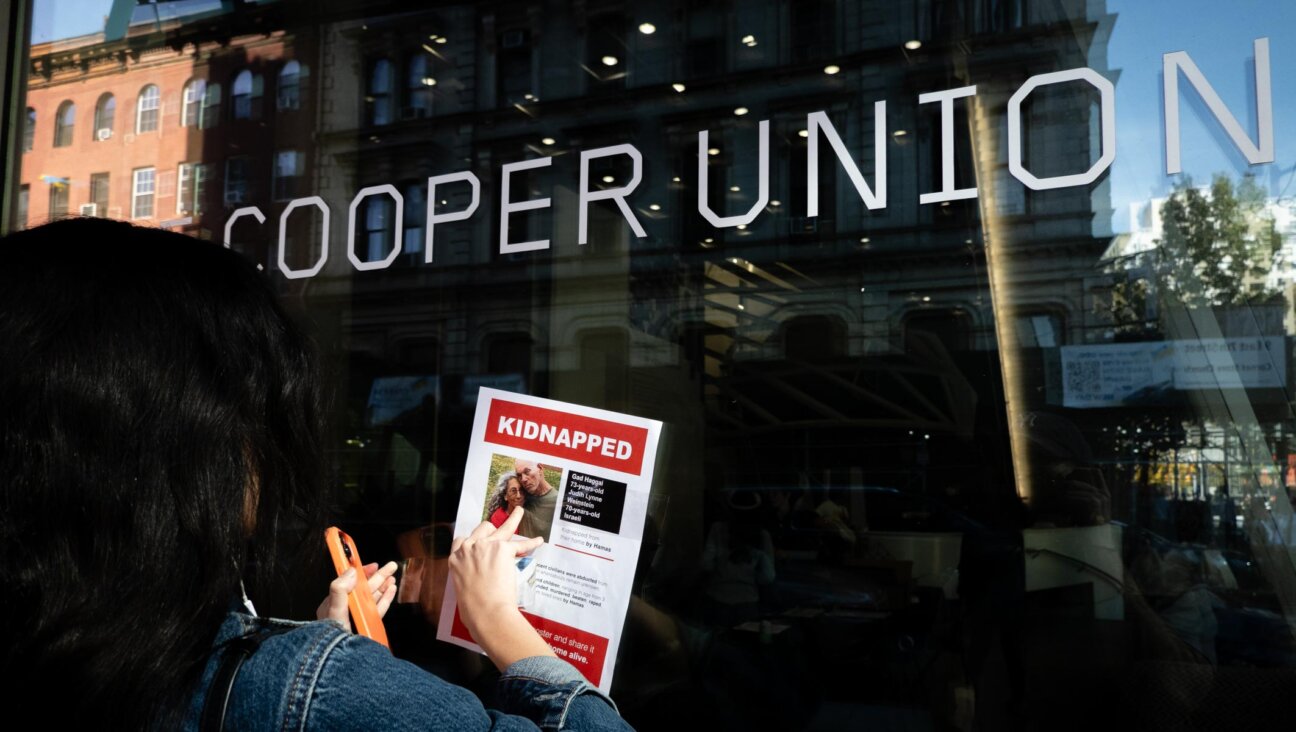Meyers Dishes on Writing and Murder

Graphic by Angelie Zaslavsky
Today, Alicia Oltuski interviews Randy Susan Meyers, who wrote “The Murderer’s Daughters,” about her experience touring the nation’s synagogues and JCCs with Jewish Book Council… and talking about domestic violence in Jewish communities. Oltuski’s blog posts are being featured this week on The Arty Semite courtesy of the Jewish Book Council and My Jewish Learning’s Author Blog Series. For more information on the series, please visit:
Alicia Oltuski: How and when did you first hear about the Jewish Book Council and their author tour?
Randy Susan Meyers: When my book came out, my lovely (and Jewish) literary agent pushed me to try out for the author tour. “Don’t forget, Jewish people read an enormous amount,” my lovely (and Jewish) literary agent said before my book launch. “We really love books.”
I’d had the good fortune of hearing authors speak at the Jewish Community Center in Greater Boston many times; I very much wanted the chance to participate as an author.
What do you think it was about your book/yourself that made the JBC audience respond to you?
My book “The Murderer’s Daughters” is about sisters who witness their father kill their mother, and how their life unfolds for the next 30 years. Everyone seemed eager to discuss the reality of domestic violence in Jewish families — so long a forbidden topic. In addition, everyone opened up about the ways in which sisters — any siblings — respond so differently to the same family events, almost as though they’d been raised in different homes.
And, as always in great Jewish events, no matter how grim the topics, we found plenty of ways to find pockets of humor. There was plenty of laughing in my sessions, especially when I talked about publishing my first novel after the age of 50.
What was your favorite experience on tour?
I grew up with a slight case of anomie, surrounded by a cultural belief that all-things-Jewish equals families-pushing-one-towards-great-achievement, while, among other family oddities, my grandmother taught me to shoplift. I was unclear what being Jewish meant or if I belonged.
Then I participated in the author’s tour. How to describe the feeling of walking into these fantastic Jewish community centers filled with readers eager to hear from you? I felt as though I were finally meeting every aunt, uncle, and cousin I’d ever wished for. Warmth and love was present everywhere.
What do you remember as the most thought-provoking or insightful question/comment you received from an audience member?
In Columbus, an audience member questioned what could be done to prevent domestic violence, which engendered a discussion about the importance of educating boys, as much as girls, about the importance of emotional and physical violence-free relationships. A healthy debate about the age to start teaching children about these issues provided, I believe, a forum for parents and educators to think about how to best bring these discussions to schools and their homes.
You’re working on a second book now. Did you feel that your experience on tour has, in any way, influenced your writing?
My second book, “The Comfort of Lies” (the story of three women connected by a child from a past infidelity), is finished and releasing in January 2013, from Atria Books. I’d already written most of the book before I was on tour.
Do you have any advice for authors about to go on book tour of any kind? Anything you wish you’d known? Any favorite airports?
Pack light, in no more than two colors that all mix and match each other, have a pair of comfortable shoes to slip into, and always have almonds mixed with raisins in your bag. Layer, layer, layer outfits. Black dresses, colorful scarves.
Airports? When switching planes, know the route from one terminal to the next!
Funniest experience on tour?
In St. Louis, unbeknownst to us, they were trying out new onstage chairs: round, high, and with rotating cupped seats, Alyson Richman (author of “The Lost Wife”), Ellen Futterman (moderator of the panel, editor of the St. Louis Jewish Light) and I perched up in these seats and began twirling around.
Alyson tried to keep her dress from popping open, and I, too short for the chair, was desperate to stay facing the audience, rather than addressing the back of the stage. I guess our plight was all too apparent — within a short time they rescued us by bringing up regular chairs.
Did you find that most of the questions related to craft/writing or to the content/subject of your work?
Most of the questions were related to the content of my book and how my life influenced writing my novel.
Best post-reading after-party?
Past a certain hour, I am incredibly boring. The only after-partying I did was allowing myself to have room service.
Alicia Oltuski’s “Precious Objects: A Story of Diamonds, Family, and a Way of Life” is now available.
The Jewish Book Council is a not-for-profit organization devoted to the reading, writing and publishing of Jewish literature. For more Jewish literary blog posts, reviews of Jewish books and book club resources, and to learn about awards and conferences, please visit www.jewishbookcouncil.org.
MyJewishLearning.com is the leading transdenominational website of Jewish information and education. Visit My Jewish Learning for thousands of articles on Judaism, Jewish holidays, Jewish history and more.
















